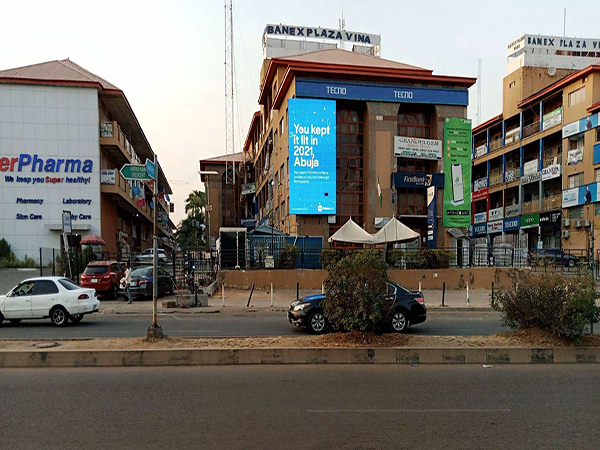The Nigerian Army has threatened to keep Banex Plaza in Abuja closed until all individuals involved in a recent confrontation with military personnel are handed over to authorities. This decision has stirred significant controversy, with shop owners, management, and legal representatives voicing their concerns over the implications of such a move.
The confrontation reportedly began when a customer at Banex Plaza complained about a broken phone. In response, the customer sought assistance from a military man to resolve the issue. Subsequently, the plaza’s management and local police intervened, attempting to mediate the dispute. Despite their efforts, the customer refused to accept the proposed resolution, escalating the situation.

In the aftermath of the incident, a legal council has been established to address the consequences and hold the responsible parties accountable. The council’s lawyer has condemned the incident, emphasizing that using wrongful actions to correct perceived wrongs is unacceptable. The lawyer highlighted that innocent individuals should not suffer due to the actions of others, criticizing the Army’s approach to the investigation and questioning their methods.
The lawyer argued that the Nigerian Army should collaborate with Banex Plaza’s management rather than take drastic measures that could harm businesses. They stated that the general manager or chairman of the shop owner’s association should not be responsible for arresting individuals, as they have no authority to enforce such actions within the plaza.
The lawyer called upon President Tinubu and the National Assembly to intervene, urging them to address the escalating tensions and ensure that businesses can operate without undue interference. The situation, according to the lawyer, has generated significant tension and needs immediate attention from higher authorities to prevent further complications.
The legal representative also pointed out attempts by some individuals to tribalize the incident, exacerbating the already tense situation. The lawyer stressed that the military should refrain from locking down businesses over isolated incidents, as such actions could unfairly penalize innocent shop owners and employees who depend on the plaza for their livelihood.
Banex Plaza, a bustling commercial hub in Abuja, hosts numerous businesses that provide essential services to the community. The closure of the plaza would not only disrupt these businesses but also negatively impact the local economy. The legal council has called for the military to allow Banex Plaza to reopen, arguing that businesses should not be held hostage due to an incident that should be addressed through proper legal and managerial channels.
The lawyer’s appeal emphasizes the need for a balanced approach to conflict resolution, one that does not undermine the economic stability of the area or the rights of business owners. They argue that the Nigerian Army while maintaining law and order, should also consider the broader implications of their actions on civilian life and commerce.
The dispute at Banex Plaza highlights the need for effective conflict resolution mechanisms that respect the rule of law and protect the rights of all parties involved. The Nigerian Army’s decision to shut down the plaza until those involved in the confrontation are handed over has sparked significant concern. Legal representatives urge the military to work collaboratively with plaza management and higher authorities to resolve the issue without further disrupting business operations. The resolution of this incident will set a precedent for how similar conflicts are handled in the future, emphasizing the importance of fair and just practices in maintaining public order.




